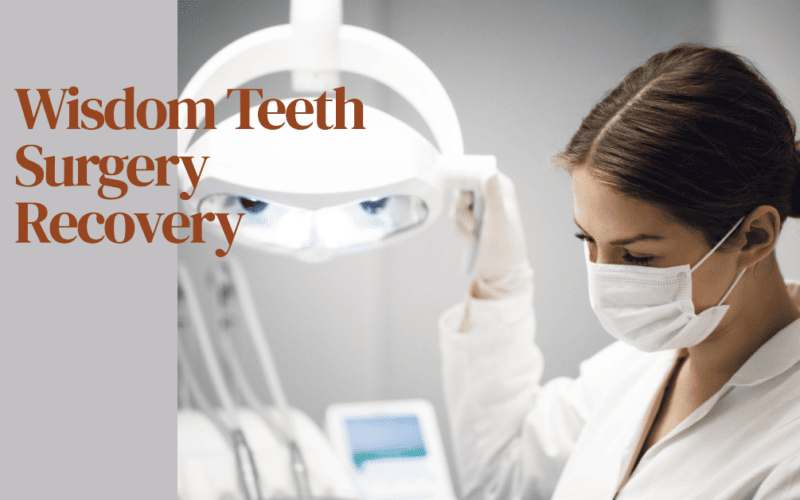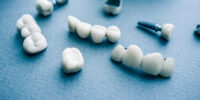Things You Must Do for Wisdom Teeth Surgery Recovery

Wisdom teeth surgery is a common dental procedure that involves the removal of the third molars, also known as wisdom teeth. While the surgery itself is relatively straightforward, the recovery period plays a crucial role in ensuring proper healing and minimizing discomfort. In this article, we will discuss ten essential steps you should take for a smooth and successful wisdom teeth surgery recovery.
-
Plan Ahead: Preparing for Wisdom Teeth Surgery
Before your surgery, it is essential to consult with your oral surgeon to discuss the procedure and any specific instructions. You may be advised to stop certain medications or adjust your diet to ensure optimal healing. Additionally, make arrangements for transportation and arrange a comfortable recovery space at home.
-
Anesthesia Options and Considerations
Wisdom teeth surgery can be performed under local anesthesia, sedation techniques, or general anesthesia. Your oral surgeon will determine the most suitable option based on the complexity of the procedure and your comfort level. Understanding these anesthesia options will help you make informed decisions and alleviate any concerns.
-
What to Expect on the Day of Surgery
On the day of your surgery, you will check in at the oral surgeon’s office and prepare for the procedure. The surgical process will be performed step-by-step, ensuring your comfort and safety. Following the surgery, you will be moved to a recovery room for careful monitoring.
-
Immediate Post-Surgery Care
After the surgery, it is normal to experience some bleeding and swelling. To manage these, your oral surgeon will provide instructions on applying gauze pads and ice packs. Pain and discomfort can be controlled with prescribed medications and pain management techniques. Proper oral hygiene practices, such as gentle rinsing and avoiding strenuous activities, will promote healing.
-
Foods and Drinks for Wisdom Teeth Surgery Recovery
During the recovery period, it is crucial to follow a soft and liquid diet. Consuming nourishing foods rich in vitamins and minerals can aid in the healing process. However, certain foods and drinks, such as hot beverages and crunchy snacks, should be avoided to prevent complications and discomfort.
-
Managing Discomfort and Swelling
To alleviate discomfort and reduce swelling, you can apply ice packs and warm compresses to the affected area. Over-the-counter pain relievers and anti-inflammatories recommended by your oral surgeon can also provide relief. Additionally, natural remedies like herbal teas and essential oils may help reduce swelling.
-
Rest and Relaxation Tips
Adequate rest is vital for a speedy recovery. Take time off from work or school and prioritize relaxation. Ensure comfortable sleep by using extra pillows to elevate your head and adopting stress-reducing activities like reading or listening to calming music.
-
Oral Hygiene Practices During Recovery
Maintaining proper oral hygiene is crucial during the recovery period. Gently brush your teeth using a soft-bristle toothbrush, being cautious around the surgical area. Your oral surgeon may also recommend saltwater rinses or specialized oral rinses to keep the surgical site clean and reduce the risk of infection.
-
Dealing with Potential Complications
Although complications after wisdom teeth surgery are rare, it is important to be aware of potential issues such as dry socket and signs of infection. Your oral surgeon will provide guidelines on preventing dry socket and instructions on when to seek immediate medical attention. It is essential to follow these guidelines for a smooth recovery.
-
Returning to Normal Activities and Follow-up Visits
Recovery time varies for each individual, but your oral surgeon will provide a general timeline for returning to regular activities. Gradually reintroduce solid foods, resume exercise, and engage in physical activities as advised by your oral surgeon. Additionally, attend follow-up visits to ensure proper healing and address any concerns or questions you may have.
FAQ about wisdom teeth surgery recovery
Q. How long does wisdom teeth surgery recovery take?
The duration of wisdom teeth surgery recovery can vary from person to person. Generally, the initial healing period lasts about one to two weeks. However, complete healing and the resolution of any residual symptoms may take several weeks or even months, depending on the complexity of the surgery and individual healing abilities.
Q. Can I eat solid foods after the surgery?
It is advisable to follow a soft and liquid diet immediately after wisdom teeth surgery. Solid foods should be avoided during the initial healing phase to prevent any damage to the surgical site or dislodging of blood clots. Your oral surgeon will provide specific dietary instructions, including when it is safe to gradually reintroduce solid foods.
Q. Is it normal to experience swelling and bruising?
Yes, swelling and bruising are common after wisdom teeth surgery. These are natural responses of the body’s healing process. Swelling usually peaks within the first 48-72 hours after surgery and gradually subsides. Applying ice packs, following proper post-operative care, and taking prescribed medications can help reduce swelling and bruising.
Q. Can I smoke or drink alcohol during recovery?
It is highly recommended to avoid smoking and drinking alcohol during the recovery period. Smoking can impair the healing process, delay recovery, and increase the risk of complications such as dry socket. Alcohol can interfere with medications and may hinder the body’s ability to heal efficiently. It is best to refrain from these habits until your oral surgeon gives you the green light to resume them.
Q. How soon can I return to work or school after surgery?
The recovery time needed before returning to work or school can vary depending on the individual and the nature of the job or academic requirements. In general, it is recommended to take at least a few days off to allow for rest and proper healing. Your oral surgeon will provide specific guidelines based on the complexity of the surgery and your unique circumstances.
Q. Are there any long-term complications associated with wisdom teeth removal?
Wisdom teeth removal is generally a safe procedure with a low risk of long-term complications. However, like any surgical procedure, there are potential risks, although rare. These may include infection, dry socket, nerve damage, or damage to adjacent teeth. It is important to closely follow the post-operative instructions provided by your oral surgeon to minimize these risks and ensure a successful recovery.
Q. Can I drive myself home after the surgery?
No, it is not recommended to drive yourself home after wisdom teeth surgery, especially if you received sedation or general anesthesia. The effects of anesthesia can impair your coordination, reflexes, and judgment, making driving unsafe. Arrange for a responsible adult to accompany you to the appointment and drive you back home.
Q. How can I manage anxiety or fear before the surgery?
Pre-surgery anxiety is common, but there are several strategies to help manage it. Openly discuss your concerns with your oral surgeon to gain a clear understanding of the procedure. Ask questions and seek reassurance. Deep breathing exercises, listening to calming music, and engaging in relaxation techniques can also help reduce anxiety. If your anxiety is severe, your oral surgeon may recommend additional measures such as sedation or anti-anxiety medications.
Q. When can I start brushing my teeth normally again?
It is important to maintain oral hygiene even during the recovery period. You can start brushing your teeth gently the day after the surgery, being cautious around the surgical site. Use a soft-bristle toothbrush and avoid vigorous rinsing or spitting. Your oral surgeon may recommend specific oral rinses or saltwater gargles to aid in the healing process. Follow their instructions for optimal oral care.
Q. What if I accidentally dislodge the blood clot?
Accidentally dislodging the blood clot from the surgical site can result in a condition called dry socket, which can be painful and delay the healing process. If you accidentally dislodge the blood clot, contact your oral surgeon immediately for guidance. They may recommend rinsing gently with warm saltwater to cleanse the area and provide additional instructions to promote healing. It is crucial to avoid using straws, smoking, or engaging in any activity that creates suction in the mouth, as these can increase the risk of dislodging the blood clot.
Remember, if you have any concerns or questions during your wisdom teeth surgery recovery, do not hesitate to reach out to your oral surgeon. They are the best resource for personalized guidance and can address any specific issues you may be experiencing.
By following the recommended guidelines, maintaining good oral hygiene, and closely following your oral surgeon’s instructions, you can have a smooth and successful recovery from wisdom teeth surgery. Remember that each person’s recovery process may differ slightly, so it’s important to listen to your body and give yourself the time and care needed to heal properly.
Important to know
Wisdom teeth surgery recovery requires careful attention and adherence to specific guidelines to ensure optimal healing and minimize complications. By following the ten essential steps outlined in this article, you can have a smoother recovery experience.
Remember to plan ahead by consulting with your oral surgeon and making necessary preparations before the surgery. Understand the anesthesia options available and discuss them with your oral surgeon to alleviate any concerns. On the day of surgery, follow the instructions provided by your oral surgeon and be prepared for the post-operative care in the recovery room.
During the immediate post-surgery period, manage bleeding and swelling by following the guidelines provided by your oral surgeon. Take prescribed medications and employ pain management techniques to alleviate discomfort. Follow a soft and liquid diet, ensuring proper nutrition while avoiding foods and drinks that may interfere with the healing process.
To manage discomfort and reduce swelling, apply ice packs and warm compresses as instructed. Rest and relaxation are essential for recovery, so take the necessary time off and engage in activities that promote relaxation. Maintain proper oral hygiene by gently brushing your teeth and using recommended oral rinses.
How about Complications
While complications are rare, it’s important to be aware of potential issues such as dry socket or signs of infection. Follow your oral surgeon’s instructions to minimize the risk and seek medical attention if needed. Gradually resume normal activities based on the provided timeline and attend follow-up visits to monitor the progress of your recovery.
Remember, a smooth recovery ensures the best long-term outcome for your oral health. Take care and be patient during this crucial healing phase.
Note: This article is for informational purposes only and should not be taken as medical advice. Consult with your oral surgeon or healthcare professional for personalized guidance and recommendations regarding your wisdom teeth surgery recovery.









